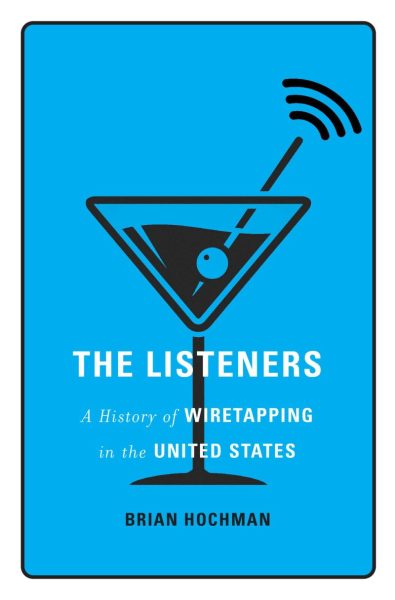A Georgetown University English professor won the 2023 Surveillance Studies Network (SSN) Book Prize, an award that recognizes the top scholarship of a book about surveillance studies, the English department announced Feb. 15.
Brian Hochman, American Studies program director, received the award for his 2022 book “The Listeners: A History of Wiretapping in the United States.” The book examines how communication companies and the U.S. government surveilled citizens and customers, beginning as early as tracking telegraphs during the Civil War and continuing to modern electronic monitoring.
Hochman said he discovered the topic of wiretapping in the United States by accident when reading about the topic in a 19th-century newspaper.
“Eight years later – after reading tens of thousands of pages of government documents, combing through legal cases and archival records and conducting interviews with privacy advocates and former surveillance technicians – I’d written a book. But there is still so much more work to be done,” Hochman wrote to The Hoya.

The SSN Prize awards the scholar of the best written study of a surveillance topic from the preceding year. Hochman’s book also won awards for being one of Publisher Weekly’s Best Nonfiction Books of 2022 and one of CrimeRead’s Best Critical/Nonfiction Biography Books of 2022.
Daniel Shore, the chair of the English department, said Hochman’s colleagues are proud of the recognition his book has received since its publication.
“It is a testament to how the best interdisciplinary work in our field can illuminate the conditions in which we live and how we got ourselves into our current predicaments,” Shore wrote to The Hoya. “The humanities needs just this sort of recognition of the essential work it does in helping to understand our society and our world.”
According to Shore, Hochman received support from the English department in research and production, as well as from external fellowships and grants, including from the John W. Kluge Center at the Library of Congress, a center that connects scholars researching the top issues of the 21st century.
Shore said, above all, that the book’s success ultimately represents Hochman’s dedication beyond the support from Georgetown colleagues.
“Georgetown has supported the research that Prof. Hochman does through providing the time and money needed to do serious, extended reading in libraries and archives,” Shore wrote. “All of that matters, even if the success of the book finally came down to the immense labor and talent that Hochman invested in it.”
Fiona Richards (SFS ’25), a student in Hochman’s “American Literature” class, said that the class, while not directly related to his research, represents the broad context of his work.
“There’s so many different disciplines that he’s pulling together in his work and also in his classes,” Richards told The Hoya. “It gets really clear when he teaches because he has this wealth of knowledge that he’s sharing with us while helping us hone that skill of making connections between literature and lived social realities.”
Richards said Hochman’s expertise in international relations (IR), surveillance studies and technology, along with his work at Georgetown, represent the scholarship that can happen within the different fields of study.
“I think this award is a great recognition of one of those areas that Professor Hochman is involved in,” Richards said. “I think that part of what makes him so knowledgeable in IR and in security studies is his backing through history, in literature and in American studies.”
Hochman said the research taught him that Americans tend to care less about electronic privacy now than in the past
“For the better part of a century — from the late 1860s to the late 1960s — Americans of all political stripes believed that wiretapping was both unconstitutional and unethical,” Hochman wrote. “The strength of that conviction prevented the U.S. government from establishing the authority to conduct electronic surveillance.”
“Today we live in an era of resignation. I think we’d do well to recover the urgency of an earlier historical moment,” Hochman added.








